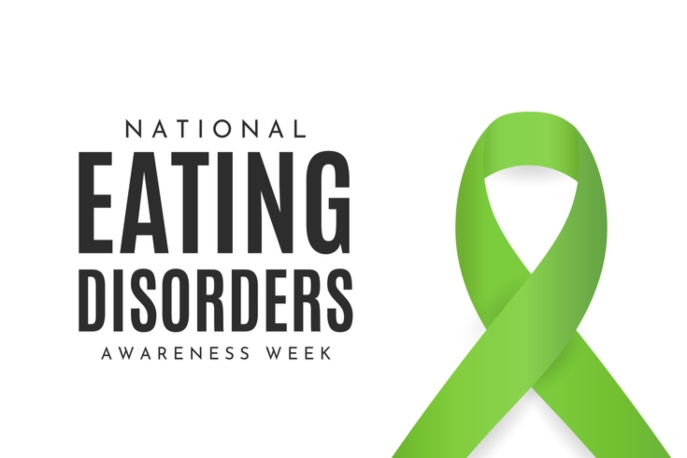Photo Credit: BojanMirkovic
When we consider how relationships impact our lives, we typically think about people-not our relationship with food or our bodies. These relationships impact us day-to-day, and very much inform how we navigate life. Eating Disorders Awareness Week, an annual campaign led by the National Eating Disorder Association (NEDA) since 2001, encourages us all to learn and educate about the issue.
Eating disorders are mental and physical illnesses that lead people to dangerous and unsustainable eating habits. Some disorders include Anorexia Nervosa (food restriction), Bulimia Nervosa (binge eating and self-induced vomiting), Binge Eating Disorder (rapid food consumption), Avoidant/Restrictive Food Intake Disorder (lack of interest of, sensory sensitivity to, or fear of food consumption) and Orthorexia (malnutrition due to obsession with healthy eating). Critically, NEDA notes the following:
“While some people may fit neatly into a diagnostic category, there are many people who exhibit multiple disorders as well as those whose disordered eating patterns may not represent a full syndrome eating disorder. These conditions should not be considered less severe or taken lightly. The sooner the behaviors are addressed, the more likely there is to be a positive outcome.”-NEDA
Eating disorders impact roughly 20 million women and 10 million men in the United States at some point in their lifetime. These disorders have no “look” to them, meaning that people with disordered eating habits can be any body type at any age and come from any gender, racial, ethnic, or socioeconomic background. Disordered eating arises from a “complex combination of biological, psychological, and sociocultural factors that converge and set off an individual’s predisposed genetic vulnerability.” As an organization rooted in the mission of combatting sexual violence, we further recognize that the resulting trauma from this type of violence can manifest itself in disordered eating. The connection between sexual violence and eating disorders, particularly among child sexual abuse survivors, is something that must be understood to advocate for both issues.
Workplace culture can unknowingly reinforce body dysmorphia (unhealthy fixation on areas of one’s body self-perceived as “flawed”) and eating disorders. Weight-related work incentives can either be the catalyst for, or revitalization of, eating disorders. Since weight is not a protected class in the United States, weight discrimination is all too common in the workplace. The Obesity Action Coalition observes that negative stigma towards larger bodies fuels pay disparities, selective hiring, lack of upward mobility, and even termination.
Just as workplaces can be a part of the problem for those suffering from eating disorders, they can also work to be part of the solution. Below are some policy- and interpersonal-based suggestions for employers to help their employees with eating disorders:
–Have a Policy Overview: Consider reevaluating your policies and procedures to encompass weight-related discrimination. RALIANCE would be proud to work with you to find ways to modify your policies and procedures to make them more equitable to all of your colleagues.
–Prioritize Mental Health Services in Health Coverage Offerings: As discussed earlier, disordered eating may stem from a larger mental health struggle. When employees with eating disorders have access to mental health services, they have a greater ability to identify their triggers and approach a healthier eating style.
–Provide Good Health-Encouraging Employee Assistance Program Offering: Your company may have an Employee Assistance Program to emphasize good health, but is it eating disorder informed? Check out this blog from Care Bridge which details how to ensure that all employees who pursue this offering are only receiving messages that encourage healthy body maintenance and self-care.
–Change Body-Centric Language Around Work: Set an example to your colleagues by avoiding discussion about food choices, diets, and bodies (including your own). These discussions can prompt negative feelings and self-image, even unknowingly and unintended.
–Designate Mealtime Breaks: Unhealthy eating habits can be encouraged when employees are tempted to skip a meal due to excessive workload. Ensure that all employees have enough time to eat a complete meal and allow employees to eat in private to avoid feelings of self-consciousness.
–Allow Time-Off for Medical Consultations: An employee’s health must always be an employer’s first priority. If an employee is struggling with an eating disorder, honor their time-off requests to seek necessary physical and mental health consultations and treatments.
–Maintain Intersectional Understanding of Eating Disorders: As mentioned earlier, anyone can have an eating disorder. However, not all identities are impacted the same within our larger systems. For example, clinicians have been shown to view Black and Hispanic women’s disordered eating habits as unproblematic in comparison to white women. Additionally, LGBTQIA+ people experience barriers to care and consequently more severe symptoms of eating disorders than their heterosexual, cisgender counterparts when finally entering treatment. Knowing about obstacles like this can only help employers, colleagues, friends, and allies in both aiding those who are suffering and also advocating for a more equitable future.
This Eating Disorders Awareness Week, let’s all work to make the workplace work for everyone!
Association of Anorexia Nervosa & Associated Disorders (ANAD) Eating Disorders Helpline
National Alliance for Eating Disorders Helpline
RALIANCE is a trusted adviser for organizations committed to building cultures that are safe, equitable, and respectful. RALIANCE offers unparalleled expertise in serving survivors of sexual harassment, misconduct, and abuse which drives our mission to help organizations across sectors create inclusive environments for all. For more information, please visit www.RALIANCE.org.

